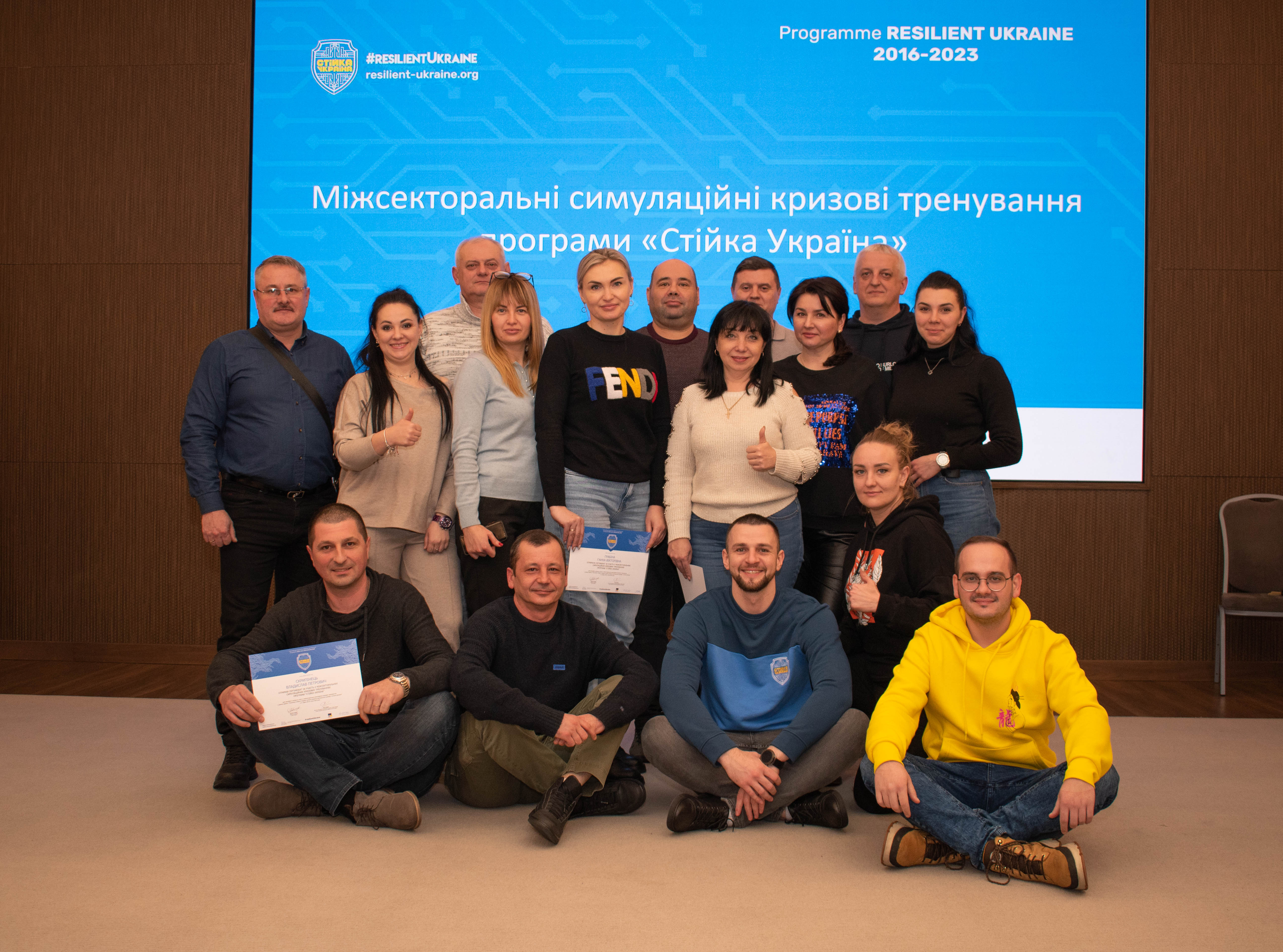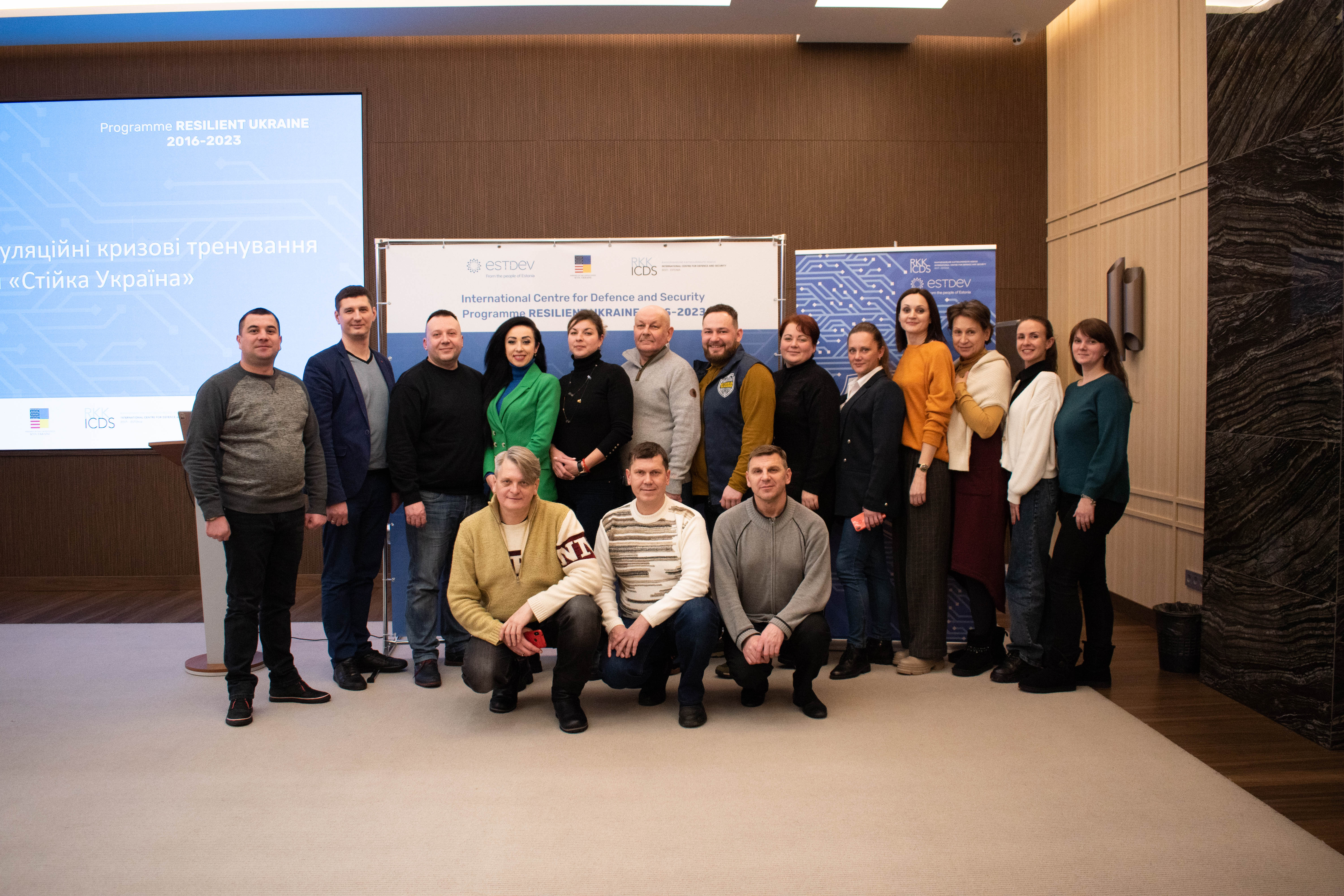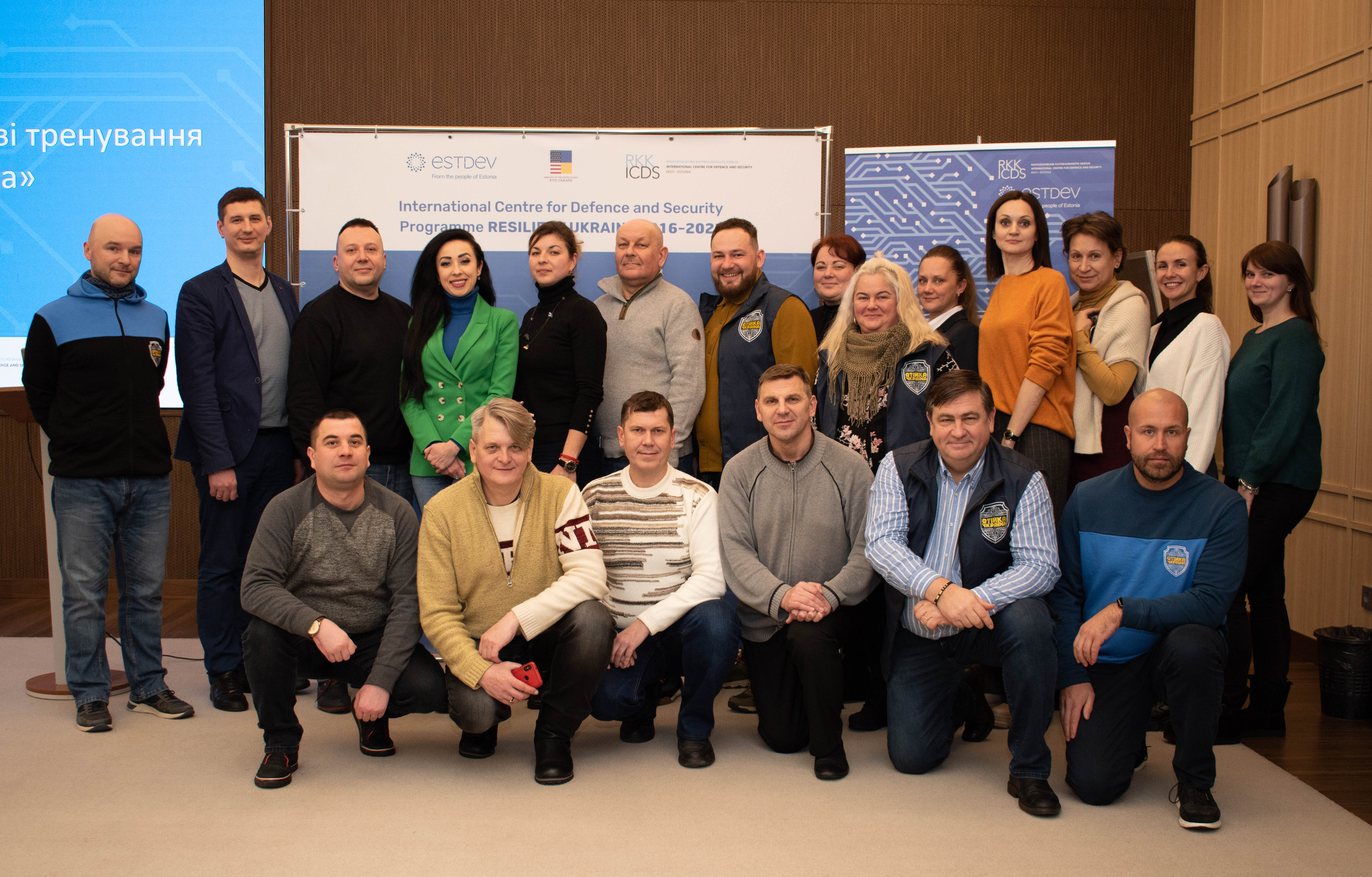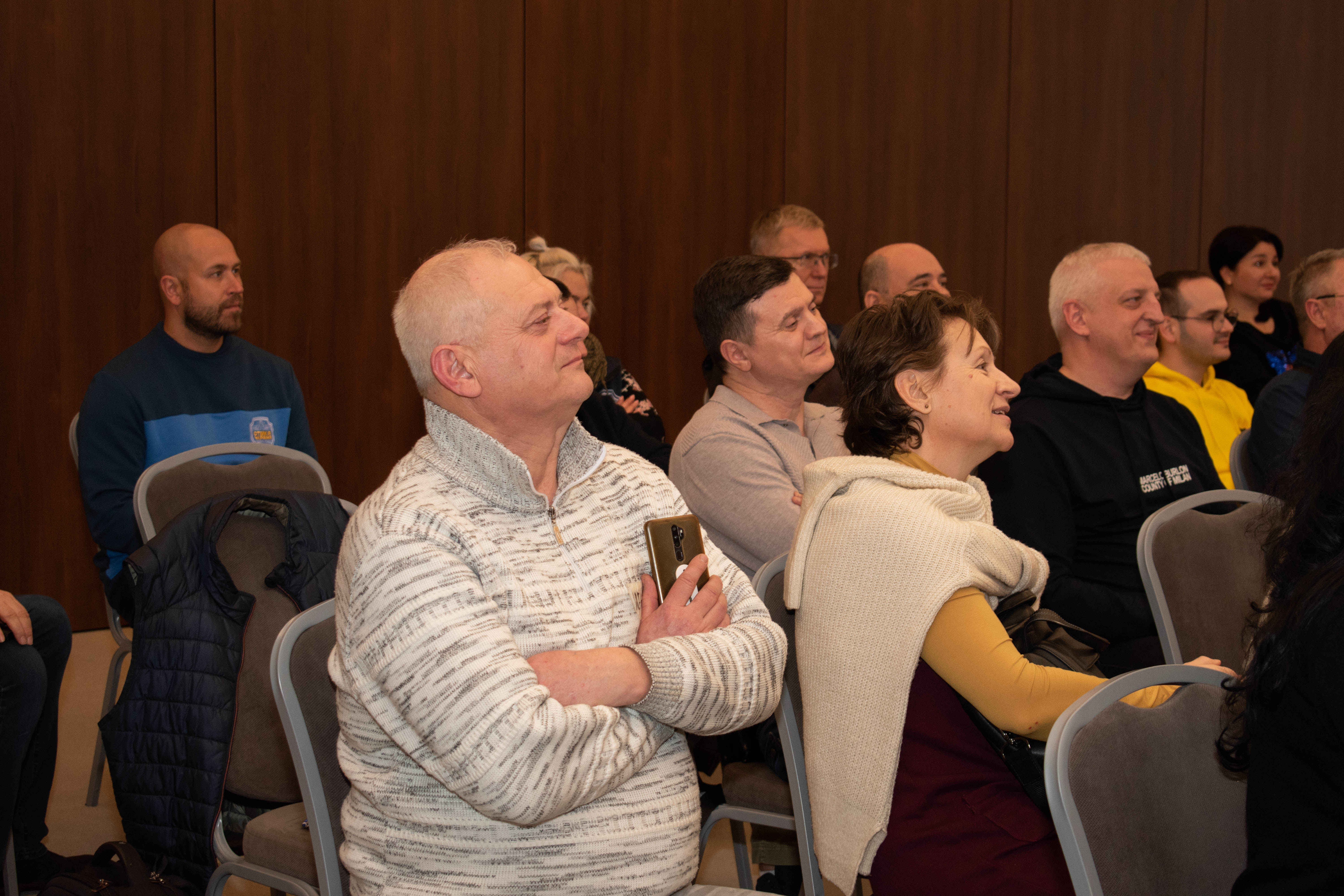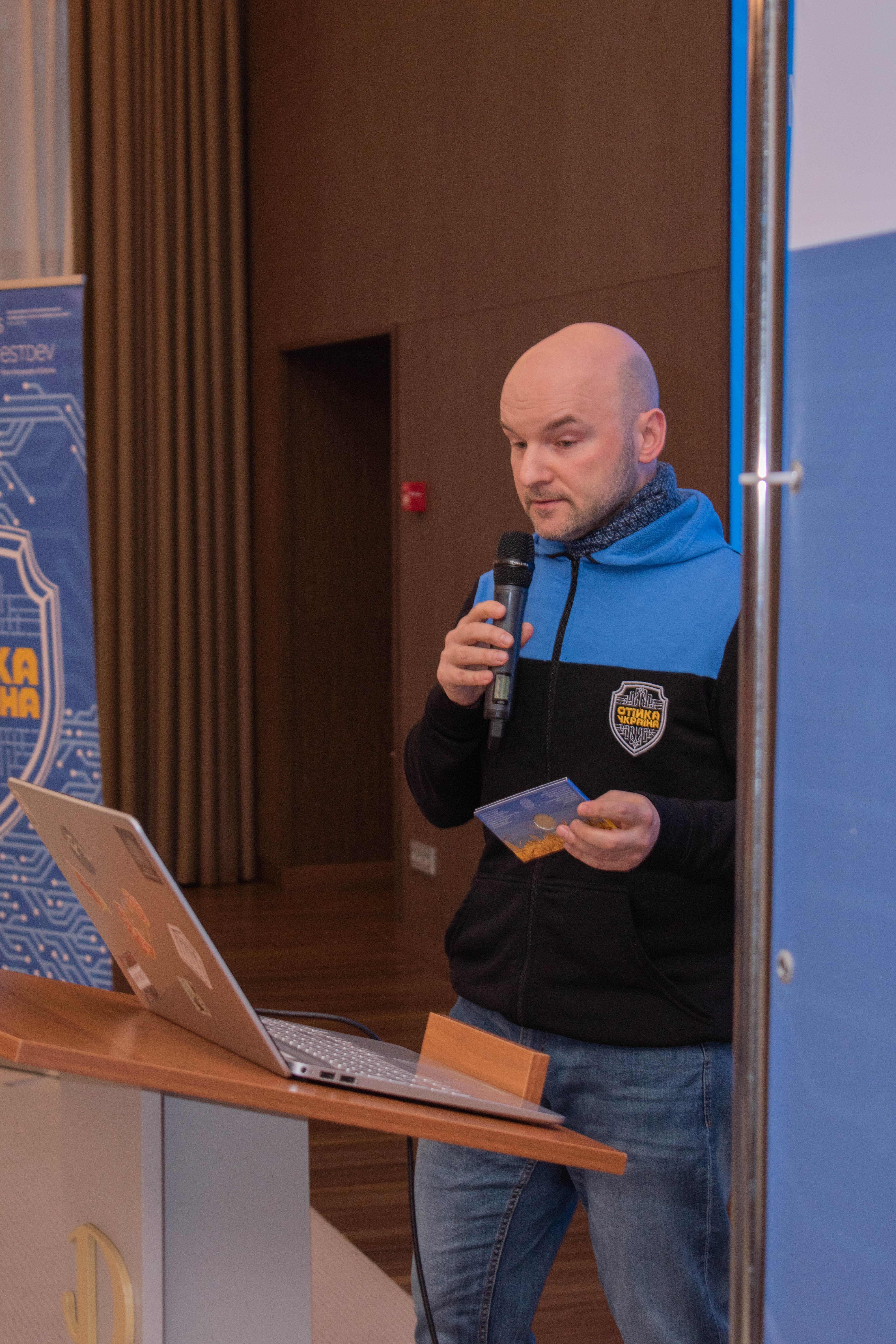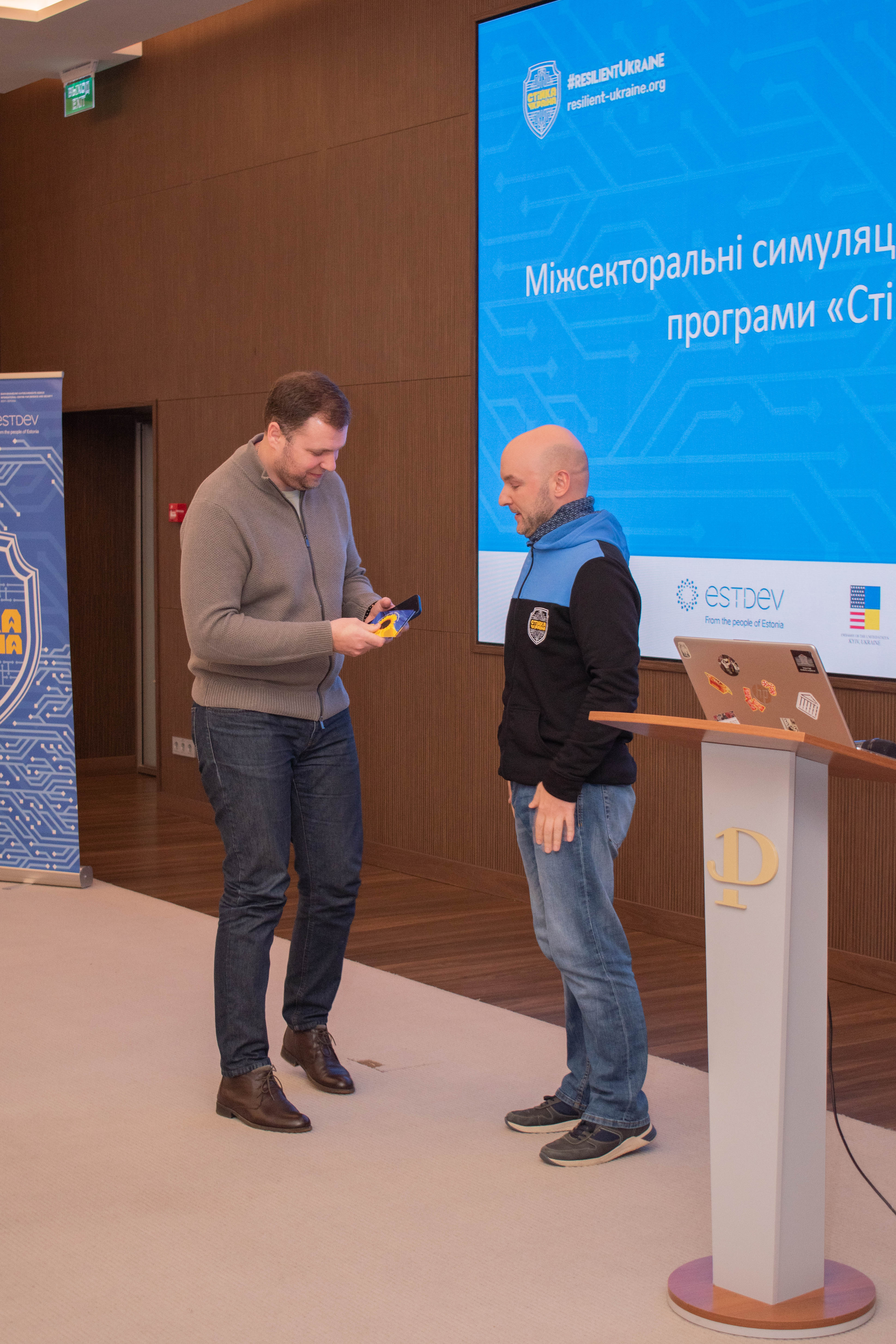"Resilient Ukraine" completes cross-sectoral crisis simulation exercises in Odesa!
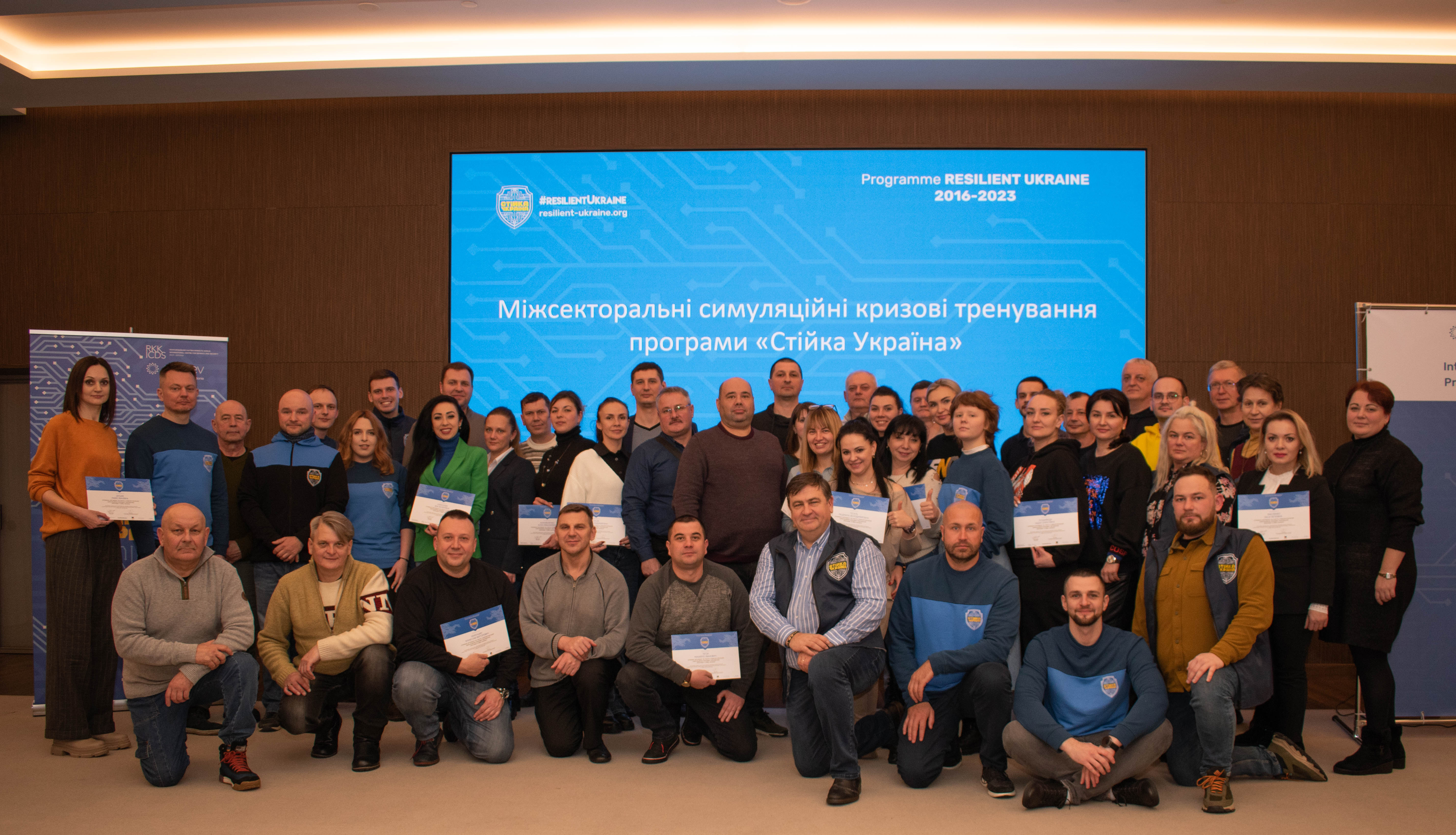
The Estonian-Ukrainian development co-operation programme "Resilient Ukraine" conducted the eighth cross-sectoral crisis simulation exercises on January 30-31, 2023.
The final destination for the event was Odesa, where more than 30 representatives of various sectors and structures took part in modelling a complex crisis situation. Among the participants were employees of the Odesa Regional Military Administration, Odesa City Council, the Main Directorate of the State Emergency Service of Ukraine in Odesa Region, as well as representatives of local media and academia from the Odesa I. I. Mechnykov National University.
For two days, the participants were solving a complex crisis that incorporated technogenic, informational, social, and humanitarian challenges. Simulation of the crisis was based on the scenario developed by the "Resilient Ukraine" team of subject-matter-experts.
"The scenario is the framework within which we work for two days, simulating a crisis situation,” says programme director Dmitri Teperik. “However, it is important that the scenario is flexible and adaptive to the decisions that participants prepare, discuss and then make when responding to a particular challenge. Therefore, one of the main principles of our training is that it is the participants who set the pace of the scenario to unfold."
At the same time, the mentor of the cross-sectoral crisis simulation exercises and head of the Estonia-Ukraine parliamentary friendship group in the Riigikogu (Parliament of Estonia) Mati Raidma notes the value of interpersonal interaction and contacts.
"All agencies — public, rescue, and law enforcement — have protocols that prescribe how to act in crises,” says Mati Raidma. “However, when a real emergency occurs, everyone's hair is on fire. The decisive component to solving the problem then becomes people-to-people interaction, especially when responding to complex challenges. Therefore, our exercises are aimed at developing and maintaining intersectoral relations so that the participants have the opportunity to understand and coordinate with each other to achieve the maximum result.”
Mati Raidma adds that these exercises are a new practical format to enable interaction between different entities with a focus on cross-sectoral communication.
One of the participants, Anna Grabina who works as an associate professor of International Relations at the Odesa I. I. Mechnykov National University, confirms that such crisis simulation exercises help different sectors to coordinate. She believes such an event, in and of itself, is beneficial to building resilience on personal as well as local and regional levels.
In general, participants note that cross-sectoral crisis simulation exercises are a good opportunity to prepare for real-life emergencies and master teamwork skills, as well as test cross-sectoral communication and coordination capabilities.
Martins Tols, a representative of the European Union Advisory Mission Ukraine (EUAM), good governance and human resources management adviser and trainer, also participated in the cross-sectoral crisis simulation exercises in Odesa as an observer. The EUAM provides support to its Ukrainian counterparts in order to expedite a sustainable reform of the civil security sector by offering strategic consultations and practical support.
Moreover, Oleksandr Sheka, a representative of the Odesa Regional Military Administration and acting Director of the Department of Investments, Foreign Economic Activities, International Cooperation and Tourism, attended the course. He stresses the importance of developing intersectoral relations at the local and regional levels, which will contribute to Ukraine’s greater resilience and victory.
The cross-sectoral crisis simulation exercises were held from January 2022 through January 2023 in eight Ukraine’s cities: Sumy, Dnipro, Chernivtsi, Ivano-Frankivsk, Lviv, Uzhgorod, Ternopil, and Odesa.
The "Resilient Ukraine" team is going to present an analytical report based on the results of the project “Strengthening Ukraine’s Societal Resilience through Building Regional Expertise and Analytical Capacity in Civil Security Issues” in late March 2023 in Kyiv.
Reference:
The International Centre for Defence and Security (ICDS) is the leading think-tank in Estonia that specialises in foreign policy, security, and defence issues. We aspire to be the regional knowledge hub of the first choice for the security and defence communities in Estonia, as well as for its allies and partners.
The “Resilient Ukraine” programme develops and continuously improves standards to measure Ukrainian society’s resilience. “Resilient Ukraine” has been operated by the International Center for Defence and Security (ICDS) since 2016 with support from the Estonian Ministry of Foreign Affairs within its development cooperation programme.
The “Strengthening Ukraine’s Societal Resilience through Building Regional Expertise and Analytical Capacity in Civil Security Issues” project is implemented with financial support from the U.S. Department of State Office of the Assistance Coordinator for Europe and Eurasia under the Eighth Round of the Development Cooperation Partnership (DCP) Program.
